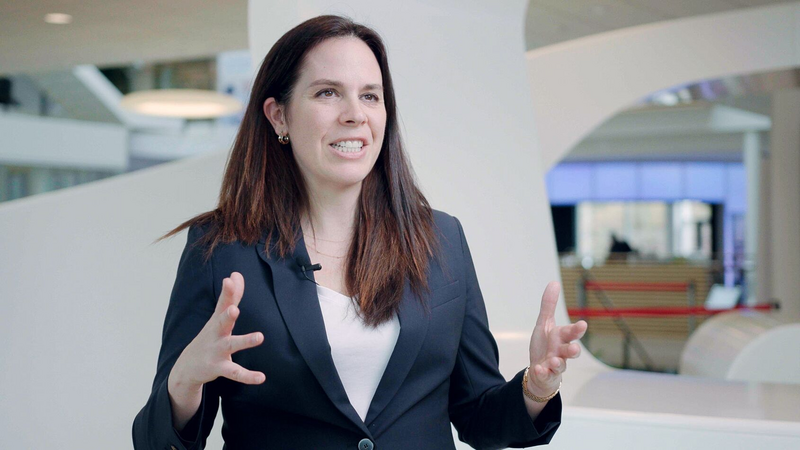The potential for artificial intelligence to transform business operations has been a topic of discussion for years. But it is the rise of ChatGPT, bringing on never before seen creative capabilities with some distinct applications to day-to-day tasks, that has propelled AI into popular culture and accelerated its role in the strategic direction of organisations.
Facility management is no exception; some of the greatest potential for advancements in workplace experience comes from AI’s integration into our work environments. In the coming years, as the understanding of its possibilities evolves, organisations can expect artificial intelligence to touch multiple aspects of the workplace, from how we construct and organise spaces to how we facilitate employee well-being.
The Current State
Since the launch of ChatGPT in the consumer world, AI’s applications for entertainment, education, and business have evolved quickly, with a host of companies and startups releasing new models regularly to meet a variety of needs. From an industry perspective, its applications to the entire food supply chain are numerous, from agriculture to recipes and onwards to food waste management. In recent years, researchers have developed a model that assesses the contents of a refrigerator to create practical recipes, including the necessary proportions and instructions to make the meal. On a larger scale, food companies have been using machine learning algorithms for years to create new ingredients and cultivate novel flavours at a speed and scale impossible to match with the human brain.
In agriculture, AI and machine learning performs tasks like monitoring self-driving tractors, controlling crop spraying, and collecting data to help farmers analyse their harvests. It is also thanks to AI that aquaculture companies now know the optimum feeding schedules to produce healthier shrimp while also using 30% less feed.
In facility management, predictive maintenance —or using technology to monitor and mitigate workplace equipment failures in real time—already plays a major role thanks to the rise of smart buildings and the digitisation of maintenance equipment. With the assistance of these digital tools, facility managers create safer and healthier environments for workers, as well as reduce waste and extend the lifespan of buildings.
New examples of artificial intelligence’s applications arise every day. As workforces get upskilled, leaders can expect increased productivity and accelerated decision-making as the technology becomes more accessible across industries.
A Better Experience for Everyone
The way we work has shifted, leaving leaders to find the right combination of hybrid touchpoints to drive productivity and culture simultaneously. Organisations who are most successful at attracting and retaining quality employees leverage data to curate excellent experiences at each of these touchpoints.
As artificial intelligence becomes more comprehensive in its applications, intelligent automation and adaptive workspaces tailored to individual preferences will do more than simply streamline a to-do list—they will act as a personal workplace assistant, doing everything from managing schedules to encouraging employees to take regular breaks for their health.
In a world where we increase our focus on skills-based hiring and training, AI will be a key tool to provide personalised recommendations for learning and upskilling depending on an employee’s interests, learning style, and long-term career goals. As the workplace becomes more focused on collaboration and well-being, technology will not only make things more efficient, but also give employees more opportunities to automate recurring tasks and spend more time on higher-value work.
Effective Operations and Sustainability
A focus on sustainability is paramount for our planet. As organisations pursue sustainable practices and net-zero emissions, AI presents exciting opportunities to help achieve these goals. At present, by monitoring and adjusting energy systems in real time, machine learning analyses and optimizes energy consumption in buildings and other facilities, helping to reduce waste, lower costs, and minimize the release of greenhouse gases. It also optimizes heating, cooling, or lighting based on factors like occupancy, weather, or employee preference.
As the technology develops, leaders can expect more sophisticated ways to understand and reduce their energy consumption. AI-powered energy management systems will become more prevalent, allowing organisations to be more effective at reducing their carbon footprint. The technology’s ability to use data to maximize resource efficiency will help identify opportunities for waste reduction and recycling. Over time, as climate change becomes more impactful, AI will enable organisations to develop targeted strategies for adapting to changing environmental conditions through advanced modelling and more accurate predictions.
In addition to energy efficiency and carbon reduction, AI is likely to be a driving force for innovation and more sustainable long-term practices.
A Responsible Approach to the Future
As AI becomes a more commonly used tool, ensuring ethical and responsible practices is crucial. Organisations and policymakers must work to mitigate algorithmic bias and support transparency and individual privacy.
The broad awareness and availability of artificial intelligence will serve to augment and shape the day-to-day experience of large segments of the workforce. With the right focus and strong regulations, it can meaningfully impact organisations’ productivity and their ability to meet their bold ESG commitments.

